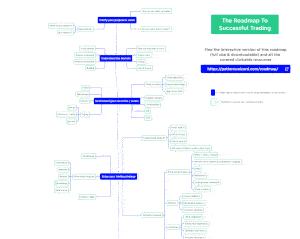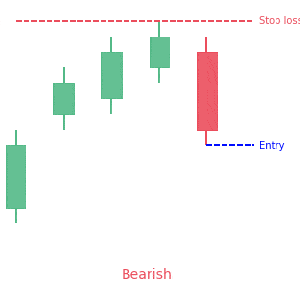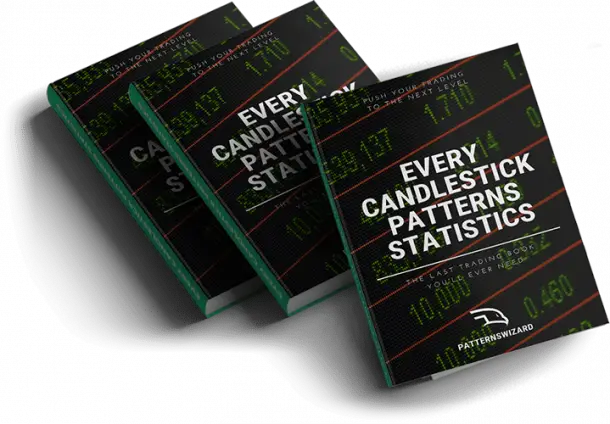Most people often ask about scalper stop-loss. Stop-loss orders enable traders to cut their losses short when trades go wrong. This perfect risk management tool executes a market order when the price of a security reaches a certain point. Additionally, stop-loss orders also help traders lock their profits. Most traders, even the most experienced traders and hedge funds, use stop-loss orders for effective risk management. But do scalpers use stop-loss as well?
The answer to this question is the topic for today’s post. Scalper stop-loss is what most people want to know about. As we are here to help you and answer your questions, this is what we are going to explain. Let’s dive deep to find out.
What is scalping?
Scalping refers to a trading style that involves taking advantage of small price fluctuations and booking small profits by instant selling. Day traders make money by booking small profits but in high volumes. That means scalpers place so many trades daily. Furthermore, success in scalping entails a higher ratio of successful trades versus losing trades. Now, let’s head back to scalpers stop-loss
Scalper stop-loss
So, do scalpers use stop-loss orders for risk management? As you know, scalping involves placing so many trades daily. This trading style requires a lot of stamina. That said, it is very highly unlikely ever to incur losses when entering so many trades on a daily basis. So, we can say that scalping involves high risk. In fact, scalping can wipe out the entire capital of scalpers in a day in case of losing trades because of the high frequency of scalping trades. Therefore, it is imperative to use risk management techniques to avoid incurring irrecoverable losses. But do scalpers use stop-loss orders for risk management or do they use other risk management techniques? Let’s see.
The simple answer to scalper stop-loss question is yes. Scalpers do use stop-loss orders but occasionally. They don’t use stop-loss orders regularly. What is the reason for using these risk management tools occasionally? This is because setting stop-loss orders for risk management is very difficult because of the higher number of trades. Now, another question arises and that is why is it necessary for scalpers to use stop-loss?
Why do scalpers need to use stop-loss?
Scalpers need to use stop-loss because they also need to cut their losses short should the trade go wrong. As you know, scalping involves entering a higher number of trades daily. So, the risk is also high and scalpers may incur huge losses whenever they enter and get stopped. They may stop because of poor market conditions, bad timing, unknown news events, etc. However, they can effectively keep their losses within the predetermined threshold by using stop-loss. That’s why scalpers use stop-loss. Thus, scalpers stop-loss enables them to prevent indigestible losses.
There is another reason for scalpers to use stop-loss. Can scalpers stay in the game for the long term if they don’t limit their losses? Similarly, can they continue to make huge losses and keep on trading? No, they cannot. They need to exit trades and incur small losses when trades go wrong instead of letting their losses pile up. Therefore, scalpers use stop-loss to stay in the game for a long time and benefit from winning trades.
Why don’t some scalpers use stop-loss?
There is another aspect when discussing scalper stop-loss and that is why some scalpers don’t use stop-loss. Actually, scalpers who don’t use stop-loss use alternatives to manage risk and cut their losses short. In fact, there are so many alternatives that enable traders to plan their exits at predefined price levels. However, trailing stops and laddering are among the most common stop-loss alternatives.
Trailing stops is a risk management technique that involves moving stops in the direction of the price movement. Traders keep on moving and stop until they reach a predefined level. On the other hand, laddering involves buying assets at three different times and selling them at three different prices. Additionally, laddering also requires traders to place stops progressively as the price moves in the favorable direction.
The wrap-up
Scalper stop-loss is a very interesting topic to know about for people planning to adopt scalping. Stop-loss orders are quite popular among all types of traders and all types of strategies. But do scalpers use stop-loss? Yes, they do and they may not use it. Scalpers using stop-loss orders use stop-loss very carefully. They cut their losses short or book profit when scalping. On the flip side, some scalpers don’t use stop-loss orders. Instead, they use stop-loss alternatives for risk management. So, we can say that risk management is a must in trading. You have to use stops to cut your losses short in case the market goes against you. It doesn’t matter whether you use stop-loss orders, laddering, trailing stop, or any other alternative.
 Good Trading requires the Best Charting Tool!
Good Trading requires the Best Charting Tool!

 We loved Marwood Research’s course “Candlestick Analysis For Professional Traders“. Do you want to follow a great video course and deep dive into 26 candlestick patterns (and compare their success rates)? Then make sure to check this course!
We loved Marwood Research’s course “Candlestick Analysis For Professional Traders“. Do you want to follow a great video course and deep dive into 26 candlestick patterns (and compare their success rates)? Then make sure to check this course!